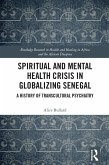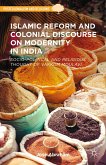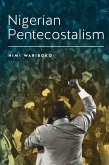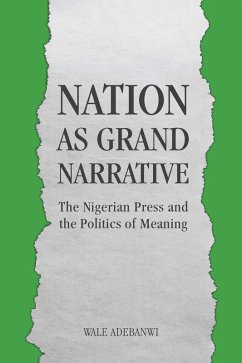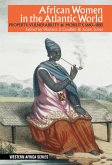A reinterpretation of the history of Sokoto that provides a new assessment of its leaders and their visions for the Muslim state.
Sokoto was the largest and longest lasting of West Africa's nineteenth-century Muslim empires. Its intellectual and political elite left behind a vast written record, including over 300 Arabic texts authored by the jihad's leaders: Usman dan Fodio, his brother Abdullahi and his son, Muhammad Bello (known collectively as the Fodiawa). Sokoto's early years are one of the most documented periods of pre-colonial African history, yet current narratives pay little attention to the formative role these texts played in the creation of Sokoto, and the complex scholarly world from which they originated. Far from being unified around a single concept of Muslim statecraft, this book demonstrates how divided the Fodiawa were about what Sokoto could and should be, and the various discursive strategies they used to enrol local societies into their vision. Based on a close analysis of the sources (some appearing in English translation for the first time) and an effort to date their intellectual production, the book restores agency to Sokoto's leaders as individuals with different goals, characters and methods. More generally, it shows how revolutionary religious movements gain legitimacy, and how the kind of legitimacy they claim changes as they move from rebels to rulers.
Sokoto was the largest and longest lasting of West Africa's nineteenth-century Muslim empires. Its intellectual and political elite left behind a vast written record, including over 300 Arabic texts authored by the jihad's leaders: Usman dan Fodio, his brother Abdullahi and his son, Muhammad Bello (known collectively as the Fodiawa). Sokoto's early years are one of the most documented periods of pre-colonial African history, yet current narratives pay little attention to the formative role these texts played in the creation of Sokoto, and the complex scholarly world from which they originated. Far from being unified around a single concept of Muslim statecraft, this book demonstrates how divided the Fodiawa were about what Sokoto could and should be, and the various discursive strategies they used to enrol local societies into their vision. Based on a close analysis of the sources (some appearing in English translation for the first time) and an effort to date their intellectual production, the book restores agency to Sokoto's leaders as individuals with different goals, characters and methods. More generally, it shows how revolutionary religious movements gain legitimacy, and how the kind of legitimacy they claim changes as they move from rebels to rulers.
Dieser Download kann aus rechtlichen Gründen nur mit Rechnungsadresse in A, D ausgeliefert werden.



